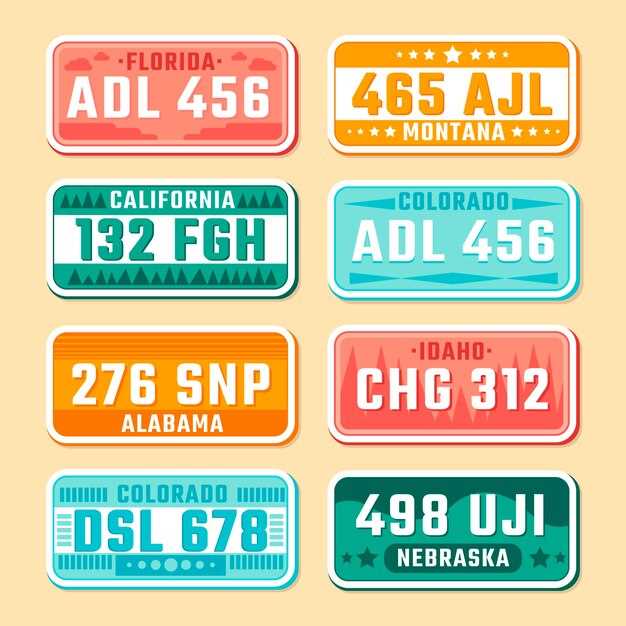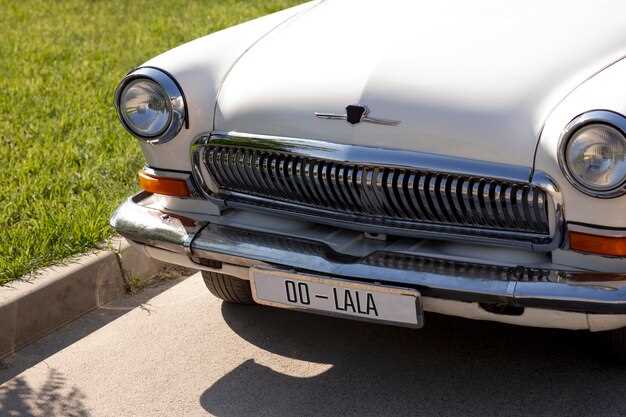
For automobile enthusiasts and collectors, the allure of historic vehicles extends beyond their vintage aesthetics and engineering marvels. One of the key components to navigating the world of classic cars is understanding the implications of registration options, particularly the appeal of historic vehicle plates. These specialized plates not only reflect a car’s heritage but also come with unique benefits and regulations that can influence your ownership experience.
Choosing historic vehicle plates can be an enriching decision for many owners, providing access to exclusive events and a sense of belonging within a passionate community. However, it is crucial to grasp the legal requirements and potential restrictions linked to these plates. Are they suitable for your needs? This question encompasses various factors, including your intended use for the vehicle, state-specific regulations, and personal preferences regarding the preservation of automotive history.
This article aims to delve into the advantages and drawbacks of opting for historic vehicle plates. We will explore the criteria necessary to qualify for these plates, the types of vehicles that are eligible, and how they can affect both your driving experience and financial responsibilities. By the end, you will have a clearer understanding of whether historic vehicle plates are the right choice for your cherished classic car.
Historic Vehicle Plates: Are They the Right Choice for You?

Historic vehicle plates can be an attractive option for car enthusiasts and collectors who own vintage or classic vehicles. These plates are designed for vehicles that meet specific age and condition criteria, typically over a certain number of years old, and are often employed to celebrate automotive history.
One of the primary benefits of historic vehicle plates is the potential for reduced registration fees and tax advantages. Many states offer lower costs for these types of licenses, which can be a significant saving over time. Furthermore, historic plates often come with unique design elements that showcase the individuality of the vehicle, adding aesthetic appeal for collectors.
However, there are restrictions to consider. Vehicles with historic plates may face limitations on usage, such as restrictions on driving them to only certain events or during specific times. This can impact your ability to use the vehicle as a daily driver or for casual trips. It’s crucial to review local regulations and ensure that the limitations align with your intended use.
Additionally, some insurance companies provide specialized policies for vehicles with historic plates, often leading to lower premiums. It’s advisable to shop around for insurance options that cater specifically to classic vehicles, as coverage may vary significantly among providers.
Ultimately, whether historic vehicle plates are the right choice depends on your ownership goals. If you are passionate about preserving and enjoying a classic vehicle within the framework of vintage car culture, these plates might be an ideal fit. However, if you require more flexibility for everyday use, traditional registration might be more suitable. Careful consideration of your driving habits, financial incentives, and the purpose of your vehicle will guide your decision effectively.
Understanding the Benefits of Historic Vehicle Plates

Historic vehicle plates offer a range of advantages for classic car enthusiasts and owners of vintage vehicles. One of the primary benefits is the potential for reduced registration fees. Many states provide significant discounts for historic vehicles, which can lead to considerable savings over time.
Another key advantage is the flexibility in usage. Vehicles with historic plates are often allowed to participate in various events, shows, and parades, where they can be showcased and appreciated by other enthusiasts. Additionally, many states do not impose mileage restrictions on historic vehicles, allowing owners to enjoy their classic cars without worrying about exceeding limits associated with standard vehicle registrations.
Furthermore, historic vehicle plates often simplify the registration process for older cars. In many cases, owners of historic vehicles do not need to undergo regular emissions testing, which can save both time and money. This exemption often applies to vehicles that meet specific age requirements and are well-maintained.
Owning a classic vehicle with historic plates can also enhance its value. Many collectors and enthusiasts seek cars with such registration, viewing them as more authentic and desirable. Preserving a vehicle’s historical integrity can increase its appeal in the classic car market, making it a worthwhile investment for future resale.
Finally, historic vehicle plates celebrate automotive history and promote awareness of the importance of preserving vintage vehicles. Owners of such cars become part of a community dedicated to keeping automotive heritage alive, connecting with like-minded individuals who share a passion for preserving the past.
Eligibility Criteria for Obtaining Historic Vehicle Plates
Acquiring historic vehicle plates is an appealing option for vintage car enthusiasts and collectors. However, specific eligibility criteria must be met to qualify for these specialized registrations. Below are the primary requirements.
- Age of the Vehicle: The vehicle typically must be at least 25 years old, though this threshold may vary by jurisdiction. This criterion ensures that the car qualifies as a classic or historic vehicle.
- Condition of the Vehicle: The vehicle should be maintained in a condition that is consistent with its original specifications. Restoration may be required to preserve authenticity, focusing on body integrity, paint quality, and mechanical functionality.
- Usage Limitations: Most jurisdictions impose restrictions on the use of historic vehicles, allowing them to be driven primarily for recreational purposes, exhibitions, or parades. Regular daily use may disqualify the vehicle from receiving these plates.
- Documentation: Applicants must provide adequate documentation proving the vehicle’s age and historical significance. This may include original titles, manufacturer documentation, or classic car club membership records.
- Insurance Requirements: Historic vehicles often require specialized insurance coverage. Owners may need to provide proof of insurance that aligns with the restrictions on usage and vehicle classification.
- Local Regulations: Each state or region may have unique regulations governing historic vehicle plates. It is essential to check with local motor vehicle departments to understand specific criteria, application procedures, and fees involved.
Meeting these criteria can facilitate the successful acquisition of historic vehicle plates, enhancing the enjoyment and value of owning a classic car.
Cost Implications of Choosing Historic Vehicle Plates
Opting for historic vehicle plates can offer unique benefits, but it also comes with financial considerations that potential owners should carefully evaluate. The primary factor is often the initial registration fee. Depending on the region, these fees can be significantly lower than standard vehicle registrations, making it an attractive option for vintage car enthusiasts.
Additionally, owners may experience reduced insurance premiums. Many insurance companies provide lower rates for vehicles registered as historic, given the limited usage and increased care taken by owners. This can translate into substantial savings over time.
However, it is important to consider potential maintenance and restoration costs. Older vehicles may require more frequent repairs and parts replacements, which can add up. Owners should budget for these potential expenses to maintain the vehicle’s condition and ensure compliance with historical regulations.
Another financial aspect to ponder is the value appreciation. Historic vehicles can appreciate significantly over time, especially if well maintained. While this does not translate directly into an ongoing cost, it is a consideration for those looking to hold onto their investment for the long term.
Finally, compliance costs with historic vehicle regulations need to be factored in. Some regions may require inspections or specific modifications to qualify for historic status, adding to the initial expenses. Understanding these requirements before deciding is crucial to avoid unexpected charges.
In conclusion, while the allure of historic vehicle plates includes lower fees and potential savings, owners must also prepare for ongoing maintenance and regulatory costs. A thorough understanding of these financial implications can help ensure a wise investment in historic vehicle ownership.
